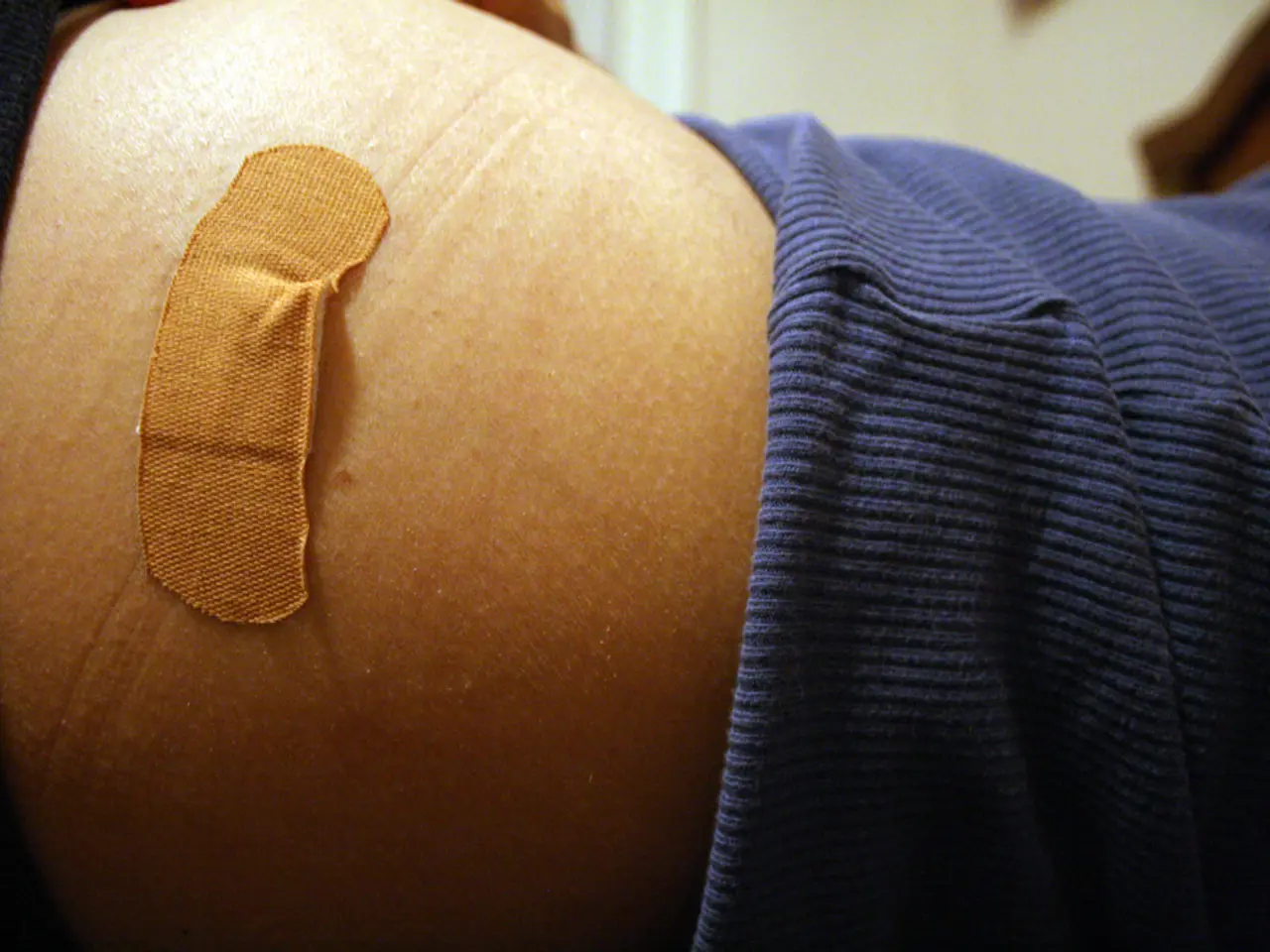Excessive zinc: Identifying symptoms, underlying reasons, and potential remedies
In the realm of dietary supplements and medications, it's essential to be mindful of the potential interactions between substances. One such interaction involves zinc and certain medications, which can lead to zinc toxicity – a condition that may have serious health implications.
Zinc, an essential nutrient with roles throughout the body, occurs naturally in small amounts in water, soil, and foods. However, human activities can significantly increase its presence in the environment. While zinc is crucial for immune function, wound healing, and protein synthesis, consuming too much can be harmful.
Taking certain medications, such as amiloride, can interact with zinc and cause it to accumulate to dangerous levels in the body. Additionally, taking multiple supplements at the same time can put a person at risk of exceeding their recommended dietary allowance (RDA) of zinc.
Chronic zinc toxicity primarily stems from excessive zinc intake disrupting the balance of other essential minerals, particularly copper. This imbalance can lead to significant health issues, including copper deficiency. The consequences of chronic copper deficiency are severe, with hematologic abnormalities such as anemia, neutropenia (low neutrophil count), and pancytopenia (reduction in all blood cell types) being possible. Neurologic issues, including neuropathies and neurological damage, may also occur due to copper's role in nerve function.
Gastrointestinal symptoms, such as nausea, vomiting, abdominal pain, diarrhea, and gut irritation, are also associated with chronic high zinc intake. Other systemic effects include fatigue, flu-like symptoms, altered or reduced sense of taste, and increased susceptibility to infections.
Potential long-term consequences of chronic zinc toxicity include persistent anemia, immune deficiency, neurological damage, and in extreme cases, fatal outcomes if extremely high doses (e.g., over 10 grams daily) are ingested.
To avoid these health risks, it's crucial to monitor zinc intake and be aware of excessive supplementation. The tolerable upper intake level for zinc is set at 40 mg per day for adults, and chronic intake above this, especially doses between 50–150 mg per day, increases the risk of toxicity.
It's also important to discuss any nutritional or vitamin supplements with a doctor before starting to take them, especially when using one or more medications that interact with zinc. Many over-the-counter vitamins, nutrient supplements, and cold remedies contain zinc. If a zinc overdose is due to taking multiple nutritional or vitamin supplements, it is important to meet with a doctor or healthcare professional to discuss a new supplement or medication regimen.
In case of a zinc overdose, contacting a local poison control center for advice is important. Drinking a glass of milk can help bind the excess zinc and prevent its absorption. Chelation, a process that removes excess metals like zinc from the body, may also be necessary in severe cases.
People who work in industries where they may be exposed to high levels of zinc, such as metallurgy, should discuss safety precautions and possible role reassignments with their employer. In case of job-related zinc exposure, seeking emergency care or calling a poison control center right away is essential.
In conclusion, while zinc is an essential nutrient, excessive intake can lead to zinc toxicity, which can have serious health consequences. By being aware of potential interactions with medications, monitoring zinc intake, and discussing supplementation with healthcare professionals, individuals can ensure they maintain a healthy balance of this important mineral.
- Excessive zinc, an essential nutrient linked with immune function and protein synthesis, can lead to zinc toxicity when consumed in large amounts due to human activities or interaction with certain medications such as amiloride.
- This toxicity can result in chronic copper deficiency, causing severe health issues like anemia, neutropenia, pancytopenia, neurological damage, and other systemic symptoms like nausea, diarrhea, and fatigue.
- Long-term consequences of chronic zinc toxicity may include persistent anemia, immune deficiency, neurological damage, and even fatal outcomes when extremely high doses are ingested.
- To avoid these health risks, it's crucial to monitor zinc intake and be aware of excessive supplementation, as the tolerable upper intake level for adults is set at 40 mg per day.
- Discussing nutritional or vitamin supplements with a doctor before starting to take them, especially when using one or more medications that interact with zinc, is important.
- In a case of a zinc overdose, contacting a local poison control center for advice is essential, and drinking a glass of milk can help bind the excess zinc and prevent absorption.
- For individuals working in industries with high zinc exposure, such as metallurgy, discussing safety precautions and possible role reassignments with their employer is advisable.
- People with medical conditions like HIV, sclerosis, NSCLC, diabetes, hepatitis, psoriatic arthritis, migraine, anthrax, multiple sclerosis, and other health-and-wellness conditions should be particularly mindful of their zinc intake and potential interactions with medications.
- Science emphasizes the importance of adequate zinc intake for overall health and wellness, and supplementation may be recommended for certain populations – but always consult a doctor first.
- The use of dietary supplements and medications must be approached mindfully, considering the potential interactions between substances, to maintain good health and avoid harmful outcomes.




